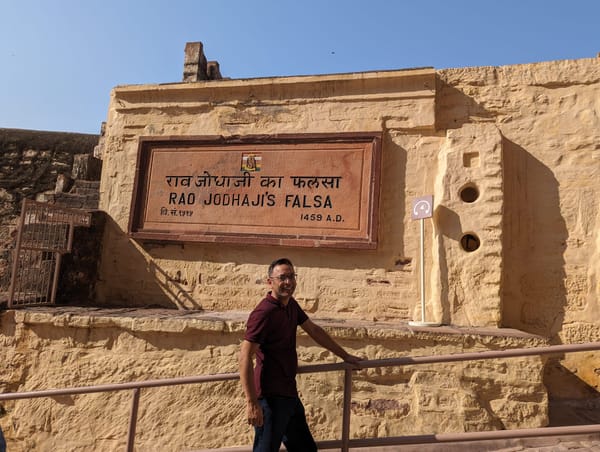Bend it like Khan, Singh & Patel
I've been a fan of Tottenham Hotspur FC since the early 1980s, and as any fellow Spurs supporter knows, its like a rollercoaster ride, lots of ups and down with plenty of bumps along the way.
One thing that often crosses my mind is the lack of representation of British South Asian footballers in the beautiful game. It’s nearly 20 years ago when I read a report published in 2005 called ‘Asians can play football’. Two decades have passed since this report and not much has really changed.
Migration from South Asia
Since the 1800s and further pushing into the 1900s, the British Empire took control of many nations across the world this included large portions of South Asia. Following this, migration levels from the area have increased massively, I myself come from South Asian heritage after my family migrated to the UK in the 1970s. Many migrants were invited to support labour shortages and support the British economy with highly skilled workers and increasing the workforce. However, this migration also brought about significant challenges, including systemic prejudice against the South Asian community, which unfortunately persists to this day and is even evident in the realm of football. This is both on and off the pitch from the boardrooms to staffing within clubs. Why are we still waiting for a level playing field?
The problem
Football is a sport that embraces diversity, and this is especially true in the British game. Throughout the years, we have seen a remarkable rise in the involvement of different cultures, which has greatly enhanced the sport. However, there is a particular ethnic group, British South Asians, that has encountered ongoing obstacles in establishing their presence in football.
During my previous job, I had the privilege of interacting with numerous footballers, clubs, and associations, which provided me with valuable insights into the culture within the game. I can vividly recall several instances of prejudice and unfair stereotypes from coaches and individuals involved in the development of football. It is clear that there is a misconception about South Asians and their interest in football.
Despite the presence of talented former players like Zesh Rehman, Anwar Uddin, and Michael Chopra, as well as pioneers like Ricky Heppolette, and Jimmy Carter, the representation of British South Asians in elite football remains low. In contrast, Black British players have seen more success since the breakthrough of Viv Anderson, Garth Crooks, and Laurie Cunningham in the 1970s.
Many British South Asian footballers face obstacles in their journey to becoming top professionals due to labels and subconscious racial biases. It is disheartening to hear stereotypes such as British South Asians are "too soft for football" and should stick to cricket. It is unfair to judge a player based on their heritage and rely on stereotypes. The issue lies within the scouting system in football, where each scout has their own preferences and biases when evaluating players. We often overlook the importance of considering a player's character and heritage.
It is truly disappointing that young British South Asian footballers are being overlooked and denied opportunities due to racial stereotypes. This has resulted in many talented individuals slipping through the cracks and never reaching their full potential.
Role Models
In order to spark interest in something, especially a sport, it's crucial to have role models to look up to. These individuals should excel in their field to inspire others to strive for greatness. Unfortunately, British South Asian footballers are underrepresented in the media, despite their talent. Players like Hamza Choudhury and Yan Dhanda have achieved great success, yet they don't receive the recognition they deserve. Similarly, women footballers Roop Kaur, Layla Banaras and Kira Rai are the next generation of South Asian female players who need more exposure. It's essential to shine a spotlight on these players to encourage more young talents to pursue a career in football.
Having role models is crucial for the advancement of football and for encouraging aspiring players from diverse backgrounds. It is important for British South Asian footballers to speak up, support young players, and strive for excellence in order to succeed in the sport. Change can only happen if we make an effort. More awareness, media coverage, and promotion are needed to shed light on this issue and showcase the talent of British South Asians.
Finally
For decades, the professional game in the country has seen a significant lack of representation from the British South Asian community, despite them being the largest single ethnic minority group.
The underrepresentation of British Asians in football is a pressing issue that is slowly being addressed. Racial biases and stereotypes are hindering these players from reaching their full potential. It's crucial to focus on a player's skills rather than external factors during their developmental years, in order to promote a more equal and diverse game. Players like those mentioned above are proving that British Asians have a place in football and should be given the opportunity to shine just like any other ethnicity. The same applies to coaching and officiating roles, where there have been only a few recent additions. In January 2023, Bhupinder Singh Gill became the first Sikh-Punjabi to serve as a Premier League assistant referee. In March 2024 his brother Sunny Singh Gill became the first British South Asian referee in the Premier League. So progress, but still a long way to go.
It is crucial to ensure that British South Asian voices are not only heard but also actively engaged in developing strategies to address the issue. This is essential for creating a more inclusive British football culture where they are recognized as integral members. Let's work together to bring about change and make football a fairer game for everyone.




